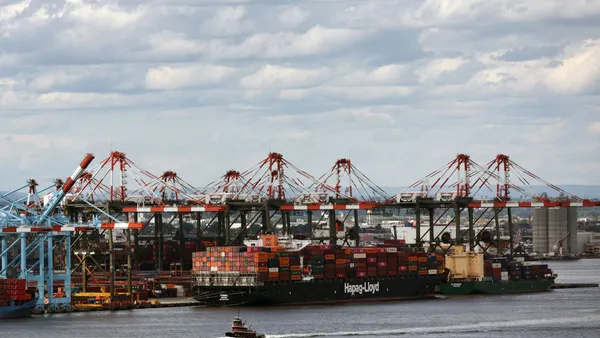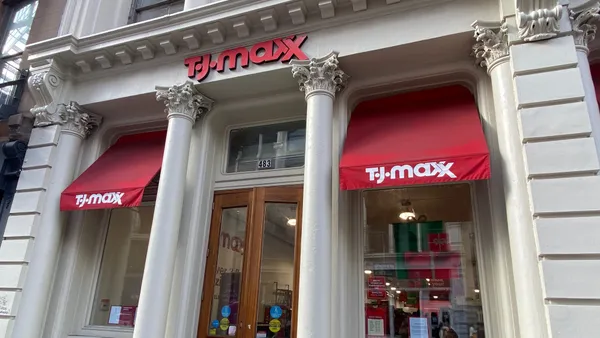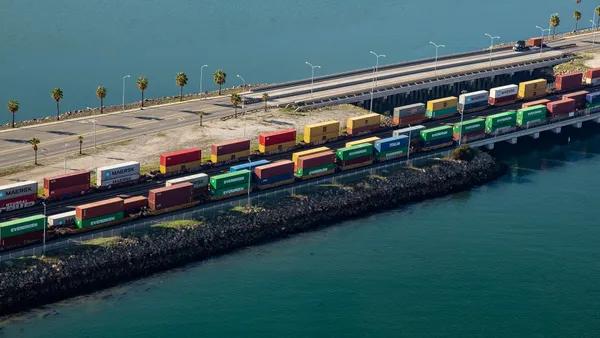Dive Brief:
- The world's six largest container carriers may be planning to start a new global association with one main goal: standardizing industry practices, ShippingWatch reported Thursday, citing sources.
- MSC's Andre Simha would lead the board of the new group, which includes Maersk Line, MSC, COSCO, CMA CGM, Hapag-Lloyd and ONE.
- The collaboration is a bid to develop best practices agreed to by all parties the from the start, before independent solutions are developed, ShippingWatch reports. However, it may face scrutiny from regulators.
Dive Insight:
A shipping group linking all six carriers comes at a crucial time for the industry.
For the past years, the ocean shipping industry has suffered from chronic overcapacity, hurting margins despite a rapid pace of consolidation. Hoping to improve revenues, carriers, competing on rates, have turned to digital tools and services that can help lower costs or differentiate the companies on service.
Still, the cost environment for carriers is only expected to get worse in 2019 for shipping lines.
The top 6 ocean carriers control 70% of container market share
| Rank | Company | Capacity (TEUs) | Market Share |
|---|---|---|---|
| 1 | Maersk Line | 4,032,229 | 17.8% |
| 2 | MSC | 3,299,402 | 14.5% |
| 3 | COSCO | 2,803,171 | 12.3% |
| 4 | CMA CGM | 2,652,601 | 11.7% |
| 5 | Hapag-Lloyd | 1,617,385 | 7.1% |
| 6 | Ocean Network Express | 1,536,830 | 6.8% |
| Total | 15,552,256 | 70.2% |
SOURCE: Alphaliner TOP 100, retrieved 11/9/2018
A new association to help fix industry-wide inefficiencies may just be the right solution. But don't call it an alliance.
As it is, the initiative is likely to face significant scrutiny from customers and regulators. For years, the global maritime regulatory community has allowed shipping lines to collaborate for the sake of efficiency. As it stands, three global alliances representing the top nine ocean carriers represent 80% of the industry's market share.
The figure may seem anti-competitive, but the alliances have an important catch. Shipping lines cannot use vessel-sharing agreements to set or control rates. The deals are, in regulators' eyes, a bid to improve efficiency and ultimately save costs for all stakeholders.
If a new association can similarly toe that line — convincing regulators and customers alike it will be used solely for efficiency initiatives, and not as a way to jointly increase rates on customers — the collaboration may well help save carriers' balance books in 2019. Let the scrutiny begin.














